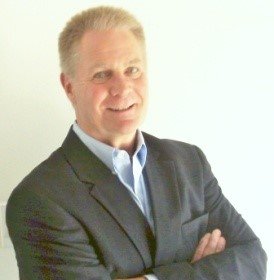Since 2001, Dwayne has owned and operated Vertex Fitness, an award-winning personal training studio on Philadelphia’s Main Line. He has co-authored the best-selling book, “Soul of Success, Vol. 2” with Jack Canfield, co-hosted the podcast, “The Fitness Professional Show,” and founded The Fitness Leaders Alliance with Vertex Fitness Manager, Kelly McCauley.
Dwayne will share his insights and experience to help people over 50 improve their fitness by adding muscle and increasing strength.
Phil Faris: It’s pretty apparent that fitness is not just a passion for you, it’s been an important part of your entire life. Perhaps you could tell us where your drive and passion for fitness started, and how it’s influenced your life.
Dwayne Wimmer: I guess it started when I was young and played sports. I was that athlete who was just average size, average speed, average everything, and to do what I needed to do; I had to just work a little harder at everything. I realized early that if you could get in better shape, get stronger and work a little harder, you could compete with people who were born with better tools than you had. I started working out when I was in high school, back in the late ’70s, early ’80s, and it was back when it was just getting started. Bodybuilding was a big thing, and a lot of athletes weren’t yet working out like they are today. I had a great coach in high school, and he opened the door for me, and the rest is history. I went on to college and played sports, and now I’m in the fitness industry myself.
Phil Faris: Where did you go to college, and what sports did you play?
Dwayne Wimmer: I went to Missouri Western State University, and I played, now they’re division two, football. I was a small kid from eastern Pennsylvania who went out to the Midwest, walked on and played football. We had a program there that you could earn scholarships, so I walked on and ended up starting for three years. I walked on as a wide receiver and ended up starting three years at offensive center. So, I was all over the place. Then (during) off-seasons I was a college cheerleader.
Phil Faris: I guess you were the base when it comes to cheerleading. You don’t look like a flier.
Dwayne Wimmer: No, I wasn’t the flier.
Phil Faris: My daughters did that, so they were both bases. At your Vertex Fitness Personal Training Studio, you and your trainers work with all types of people, but for this interview, we’d like to focus on adults, 50 plus, who want to build muscle and gain strength. Many of your members fit that description. Why is it so important for this group to add muscle and increase strength?
Dwayne Wimmer: First and foremost, it’s quality of life. Most of our seniors who come in, over 50, have never done anything like this before, and our studio is very private. Everybody who comes in is working with a trainer one on one, so there is no go-do-it-yourself and worry if you’re going to get hurt, or doing it right, or am I getting anything out of this? We’re with them every step of the way, every time they’re here. So, they’re very comfortable in the fact that they’re going to be safe while they’re doing this. They’re going to get results because we’re not going just to have them do a lot of work. It’s productive, focused work, working the whole body. The reason they come in the first place is that they’ve heard through news outlets or from their friends that they need to start working out and need to get stronger as they age so that they can have a better quality of life. When they come in, they find a very private, welcoming setting that is very focused on them while they’re here.
Phil Faris: I’m sure they appreciate the personal attention. You said that one of the main issues is the quality of life. How does lack of muscle affect someone’s quality of life as they get older?
Dwayne Wimmer: I had a client one time come to me after they had been here for a while, and they just said they could walk up the hill next to their house without stopping anymore. Or when I have someone tell me that they can carry a case of water in from the car without stopping. Everyday life includes your muscles. You must work to do your everyday chores, and if you’re stronger all over, you can do everything easier. I’ve even had a grandmother who said she loves the fact that now she can sit down on the floor and play with her grandkids, and get up without needing help. That just increases their quality of life, meaning they enjoy the things that they’re doing. She could still get on the floor with her grandkids before, but needing help to get off the floor made it less comfortable and less enticing for her to do so. So everyday life activities become easier as you get stronger.
Phil Faris: I think it’s clear that strength training is beneficial for people as they age. But it’s not easy. Otherwise, everyone over 50 would be trim, fit and strong, and be on the cover of various magazines. What are some of the most common challenges people have building strength?

